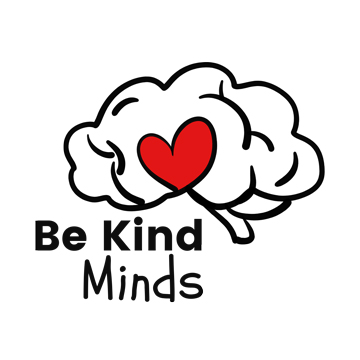By the raise of hand (or like/love/comment), who else is feeling that mental capacity threshold has been met? 🙋🏼
All the news, comment threads, debates, and finger-pointing has people teetering on the edge of a complete mental snap, while others choose to keep secure in their “don’t worry be happy” state of mind, with all but a literal sign across their face of “no soliciting your opinion please!”.
Maybe we could all use an “Out On Social Media Fast” sign right now for one full week to let some of that stress go, and give our minds a break?

We all cope with grief & stress differently, some of us express our overwhelm out loud in social media posts & venting to friends, and others disassociate by pulling back and intensely focusing on the positive.
“I’m fine, I don’t know what your problem is, but I’m totally fine!”


The point is, we’re all doing our best to manage our emotions and remain balanced without falling off the edge into the ‘rabbit hole’. Some experts have found that taking a social media/news break is at times, exactly what our mind needs.
“A social media fast can offer a much-needed respite for the body, mind, and spirit. Fasts can increase positivity, decrease anxiety, and assuage feelings of depression.”
– Dr. Carla Marie Manly, PhD author of “Joy from Fear“

If you find yourself compulsively reaching for your phone to check on updates, or maybe you don’t even know why you want to check your phone – it’s just a strong urge to scroll through the feed or do something because you feel nervous or bored and being on your phone “feels better”; this is actually a clear sign of addiction or trauma response. You’re regulating your nervous system, and it’s an unhealthy way to cope (i.e. much like biting your nails, picking at your skin is an unhealthy way to regulate your nerves).
Leading cognitive neuroscientists have identified new brain disorders linked to society’s overdependence on technology, like separation anxiety when you find yourself in a panic over “where is my phone?” These disorders are accompanied by psychiatric issues, including ADD, anxiety, OCD, and various types of psychosis.
Dr. Amen recommends 6 ways to help you disconnect and take a healthy timeout from our digital devices:
- Daily Tech Timeout – Establish a time when all devices will be turned off for the remainder of the evening.
- Weekly Internet Fasts – Reserve a day of the week for an internet fast.
- Create a Tech-Free Bedroom – One of the best ways to avoid the dangers of digital dependence is to remove TVs, computers and other electronic devices from your bedroom. Keep your bedroom free from distractions of the outside world, it will help encourage better sleep, increase intimacy with your parnter, and reduce the amount of electromagnetic frequencies (EMF) your body absorbs. EMF radiation damages healthy cells and is known to increase the risk of cancer.
- One Screen At A Time – Avoid texting or looking at your phone while watching TV. This will aid in your ability to focus while also giving your overstimulated brain some much needed downtime.
- Use Your Brain, Not Your Computer – Avoid the internet becoming a cognitive crutch. It’s important to exercise our brain muscles by recalling facts, and problem solve. So rather than lean on Google or Siri to answer questions for us, refer to our mind more often.
- Never Talk & Text – “Technoference” is a new word that means the interference of technology in couple relationships. One study demonstrated that Technoference lead to lower relationship and life satisfaction. Don’t sacrifice your relationship with people physically close to you. Keep phone and text conversations to a minimum when youa re with other people.
Why I Am Personally Taking A One-Week Social Media Fast
You will have your own personal reasons for taking a social media fast, but I will share mine in case you can relate to the reason behind why it may be something your mind desperately needs right now… first I’ll share a little back story…
The longer this pandemic has dragged on, the harder it has been for me to discover and establish a ‘new normal’ since moving across the country a year ago. I’ve struggled to find that balance and consistency, and have found myself relying heavily on the left side of my brain for a semblance of control & security in life. It has been my way of coping; researching, studying, information sharing (“info-dumping” as some neurodivergent folk like to call it 😉 ), and ‘prepping’. This move was a difficult one that we only found how difficult it was for me, personally, after we moved.
It was a new discovery to clearly see how my brain responds to traumatic memory and high levels of stress. It’s the left side of the brain that takes dominant control as the right side goes dormant (if you want the scientific explanation for why this happens, this article from YellowBrick is very interesting).
“These and other studies are presently exploring the evolution of a developmentally impaired regulatory system over all stages of life, and provide evidence that prefrontal cortical and limbic areas of particularly the right hemisphere are centrally involved in the deficits in mind and body associated with a pathological dissociative response. This hemisphere, more so than the left, is densely reciprocally interconnected with emotion processing limbic regions, as well as with subcortical areas that generate both the arousal and autonomic (sympathetic and parasympathetic) bodily-based aspect of emotions…”
– Dr. Allan N. Schore, PhD, UCLA School of Medicine “Right Brain Affect Regulation”
It hasn’t just been the pandemic or concern over the virus, it’s been everything going on in the world, how it’s affected everyone emotionally (I’m very much an empath – a Highly Sensitive Person), and it’s returning to an environment where very traumatic things happened to me during my childhood, constantly surrounded by triggering reminders, and it has been revisiting and processing past trauma – all in one big emotional hit.
“Initial reactions to trauma can include exhaustion, confusion, sadness, anxiety, agitation, numbness, dissociation, confusion, physical arousal, and blunted affect… Indicators of more severe responses include continuous distress without periods of relative calm or rest, severe dissociation symptoms, and intense intrusive recollections that continue despite a return to safety. Delayed responses to trauma can include persistent fatigue, sleep disorders, nightmares, fear of recurrence, anxiety focused on flashbacks, depression, and avoidance of emotions, sensations, or activities that are associated with the trauma, even remotely…”
– NCBI “Understanding the Impact of Trauma“
The past few therapy sessions have been incredibly helpful for me in discovering ways forward. My therapist gave me a gift of reassurance in our last session. She said (I’m paraphrasing here…):
“Becky, you have to be real with yourself. Think about it… you lived away from family for 13 years, that’s a LONG time. During those years you had your own private space for the majority of the year, you’d travel to see family maybe once or twice, or even 3 times out of the YEAR. And remember how you’d have an episode of anxiety big time before each of those trips?… now take into consideration that you’ve moved to Utah where all your family is, and you’re having those “trips” almost weekly… WEEKLY… for many people, yes, such a life adjustment wouldn’t take much time to get used to – but your brain is different in a significant way where it may take a LONG time for your mind and body to adjust to such a significant change. No wonder you have a challenging time keeping balanced emotionally, no wonder you feel scattered so often, you’re having those anxiety episodes on a weekly basis, because your whole lifestyle has changed it’s normal rhythm. It’ll take a substantial amount of time for you to adjust. Not to mention we’re living in a pandemic, which has influenced everyone’s emotional state in a significant way. You’ve weathered a major blow in multiple ways, you need to be patient, and real with yourself and set some realistic expectations to ease the emotional burden. Take it one day at a time and allow yourself the space to ride it out to find your NEW rhythm, and establish boundaries that can meet your new thresholds.”
I struggle with sensory overload. BIG crowds overwhelm me and that is why what is a simple event for many, easily becomes too much for someone with a brain like mine; like going to Church on Sunday, attending an event like a play, family reunions, parties. They all overwhelm me. I prefer small gatherings and intimate time with just one or a few people at a time. It’s much easier physically & emotionally to manage without needing to ‘mask‘ to please others.
The perfectionist in me and part of my ADHD symptoms-RSD (rejection sensitive dysphoria) also is overwhelmed when there are lots of people I care about to please. Sometimes… oftentimes, it all feels too much.
Finding Balance & A Feeling of Safety

Our recent strategy in therapy has been the use of IFS (Internal Family Systems).
“The approach combines established elements from different schools of psychology, such as the multiplicity of the mind and systems thinking, and posits that each sub-personality or part possesses its own characteristics and perceptions. IFS also brings together various strategies from the Bowenian therapy base as well as techniques from more traditional narrative and structural modalities. The different elements are united through the goal of understanding and effectively addressing the different parts of the mind.”
– Good Therapy – “Internal Family Systems (IFS)“
Keeping track of my moods, making daily notes & identifying patterns has shown that my most stable emotional state is when both my right & left brain are active and fulfilled. When I ‘get out of rhythm’, feeling like my mind is ‘out of order’, that is when my brain goes into survival mode.
Symptoms of my behavior that signals survival mode has been kicked into gear are:
- Overly focused on research & study…
- Lack of creative activity; sketching, painting, or gardening…
- Easily overwhelmed; more irritable, openly crying, less patient, more verbal ‘ranting’/’venting’…
- More often ‘info dumping’, longer social posts focused on ‘scientific study’ language / articles…
- Late nights & sleeping in…
- Playing games (i.e. Zelda, Animal Crossing) to ‘check out’…
- Morning routine becomes undisciplined…
- Cooking dinner less often because I am completely burnt out by the end of the day…
The risk, for my Bipolar & ADHD brain, of remaining in ‘survival mode’ for a long stretch of time is it climaxing into an episode of paranoia or psychosis because the threshold of stress maxes out. This kicks me into a ‘locked’ and tight state of mind that is very difficult to break out of ‘the rabbit hole spiraling’. To prevent this I need to make a U-Turn to intentionally focus on right-brain activities.
- Painting…
- Sketching…
- Writing: more story-telling, poetry…
- Cooking…
- Gardening…
- Mindefulness activities: meditation, ‘Minds Eye’ exercises in visualization, yoga, exercise (movement, 30 min daily walk), nature, journaling…
- Establishing a consistent rhythm with my morning routine…
In my IFS system, with the help of my therapist I identified 3 internal ‘parts’:
- Little One (Right Brain) – she is easily scared. She wants to feel safe to explore creatively, express herself authentically, and learn, through playing, without fear of criticism or rejection, or risk of disappointing others…
- The Student (Left Brain) – she feels a great need to be prepared (have a back up to a back up), to protect herself and those she loves. She focuses on being prepared by analyzing all the risks, potential risks, what is right vs wrong, seeking for opportunities to help others and protect those who are hurting, and identifying possibilities for solutions and healing…
- The Bodyguards – they have been assigned by the system to be the look out for potential danger and risk of system instability. They will signal the body with a tight feeling in the chest, to warn of an oncoming ‘mental storm’ that will disrupt the balance of security. The goal is to keep Little One on her side of the brain, and not feeling a need to take shelter on the left side.
To visualize what these parts look like, I see them as these pictures of me:
Little One

Her side of the brain looks like this:

The Student

Her side of the brain looks like this:

The Bodyguards
The bodyguards are who I envision as my angels…

The goal in taking a full week away from Social Media is to silence all the added noise that fuels the panic… focusing on right-brain tasks will hopefully produce more mental flexibility, creating a balance between right & left. Once this balance has been reached I can bring back more focus on left-brain tasks since that is naturally my go-to when feeling threatened. This may become a new way of coping when my system sends a signal of potential threat, and I can prevent an inner ‘lockdown’ by going into ‘quiet mode’ with right-brain-focused tasks to secure the balance as I remind Little One she’s safe.
If you feel this may be a helpful way for you to manage mental stability, consider mentioning to your therapist about IFS, creating an internal system that can help you organize how your body manages its needs to promote overall mental wellness.
I don’t know what my social media fasts will look like long-term. I may adopt as a long-term daily/weekly solution more of Dr. Amen’s recommendations as mentioned above, or it may be a regular monthly 1-week fast, but it’s something I plan to play around with until I find a way to reliably return to safety (Little One feeling safe to return to her side of the brain) when I am signaled by the system. Right now Little One is trying to work her way back to the right side, but as you can see in this long article, The Student has a very dominant voice still. 🙂
If you find this article helpful as you are searching for ways to rescue your mind, please feel free to share with your friends who might also benefit from reading this. 🙂 💚

